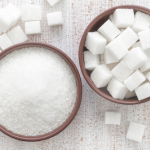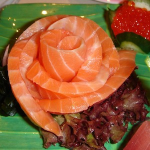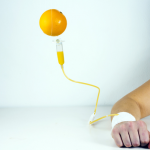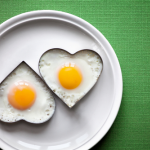If you have a long commute that consists of sitting on a bus, train or car, it may be time to think differently. A new study found that biking to work reduces the risk of cardiovascular disease, cancer and all causes of mortality. So, if you want an easy way to make a big improvement in your health, jump on your bike the next time you head to work.
Food & Nutrition
It's one year after Berkeley, CA instituted a tax on sugar-sweetened beverages, and the results are in. Among them: there was no significant drop in caloric intake, even using self-reports and their known limitations. So consumers paid a bit more and saw no benefit.
Every scientific paper should be required to answer a simple question before it's published. So prior to considering whether ingesting too many polyunsaturated fats (e.g., fish and foods cooked with vegetable oil) will make women lazy, TV-watching diabetics, an elementary-school query must first be asked: Does that even make sense?
Many groups blame sugar and sugar-sweetened beverages for the epidemic of obesity. Some have argued that a tax on them would lower consumption, and thus decrease the prevalence of obesity. But a recent Australian study showed that decreasing intake of these drinks was actually accompanied by an increase in obesity prevalence.
Habit is using a metabolic-challenge drink to understands an individual's metabolomics. They stand upon real science providing at-home personalized nutritional recommendations.
Ever wonder why orange juice tastes to bitter after brushing your teeth? It's science.
Ever wonder why brushing your teeth may suppress or open up your appetite? That's science-y.
To get at the science of personalized nutrition, we need to understand the emerging science of metabolomics, which is “the systematic study of the unique chemical fingerprints that specific cellular processes leave behind." Let's get an overview by considering our sweet friend, glucose.
Metabolomics is an emerging field that studies the "unique chemical fingerprints that specific cellular processes leave behind." In this case, it's applied to what we eat. And coupled with machine learning, this may well give us very personalized diets to improve our health.
There are many reasons not to take dietary supplements, just take a look at some of the stuff we've written in the past. But to jog your memory, here are five reasons not to start taking dietary supplements, or multivitamins.
We know you're not going to attach an intravenous line to an orange to get a vitamin-C boost, but this picture is worth a 1,000 words. Hyper-healthnicks are visiting "infusion clinics" for IVs of all sorts of vitamins and minerals. These costly clinics may have a dubious connection to "good" health, but hey – they sue are chic and comfortable.
From telecommunications and transportation to healthcare and entertainment, cutting-edge technology serves society well. But not when it comes to food. Oh no. We don't want technology anywhere near that. Neanderthal know-how is perfectly fine, thanks. What's behind that bizarre thinking?
Not only are eggs not the villainous promoters of heart disease they've been cracked up to be, they may actually help promote heart health. An investigation into the subtypes of LDL and HDL cholesterol found that eating as many as 3 eggs per day can have a positive influence — at least in younger, healthy people.









